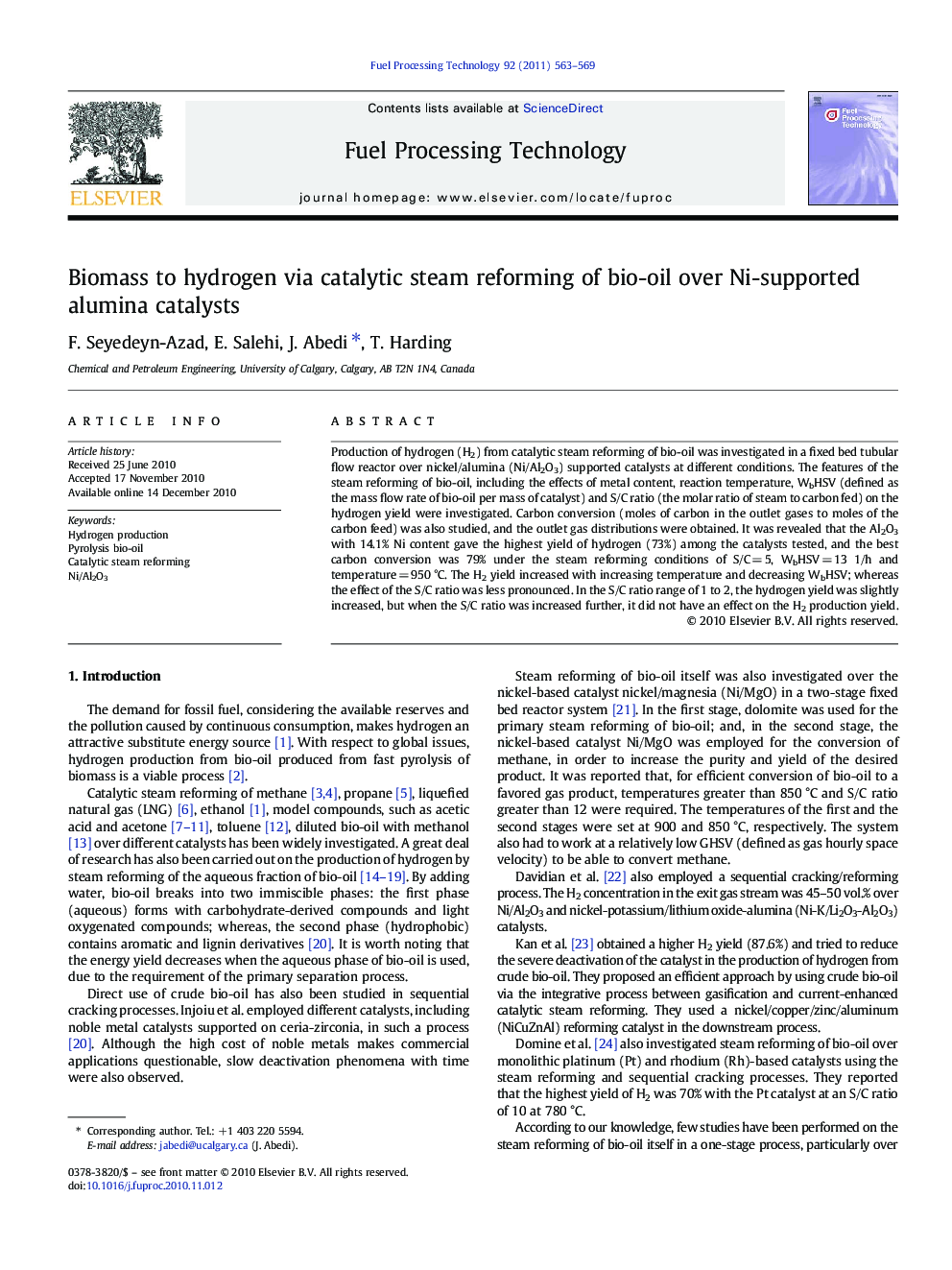| Article ID | Journal | Published Year | Pages | File Type |
|---|---|---|---|---|
| 10274776 | Fuel Processing Technology | 2011 | 7 Pages |
Abstract
Production of hydrogen (H2) from catalytic steam reforming of bio-oil was investigated in a fixed bed tubular flow reactor over nickel/alumina (Ni/Al2O3) supported catalysts at different conditions. The features of the steam reforming of bio-oil, including the effects of metal content, reaction temperature, WbHSV (defined as the mass flow rate of bio-oil per mass of catalyst) and S/C ratio (the molar ratio of steam to carbon fed) on the hydrogen yield were investigated. Carbon conversion (moles of carbon in the outlet gases to moles of the carbon feed) was also studied, and the outlet gas distributions were obtained. It was revealed that the Al2O3 with 14.1% Ni content gave the highest yield of hydrogen (73%) among the catalysts tested, and the best carbon conversion was 79% under the steam reforming conditions of S/C = 5, WbHSV = 13 1/h and temperature = 950 °C. The H2 yield increased with increasing temperature and decreasing WbHSV; whereas the effect of the S/C ratio was less pronounced. In the S/C ratio range of 1 to 2, the hydrogen yield was slightly increased, but when the S/C ratio was increased further, it did not have an effect on the H2 production yield.
Related Topics
Physical Sciences and Engineering
Chemical Engineering
Chemical Engineering (General)
Authors
F. Seyedeyn-Azad, E. Salehi, J. Abedi, T. Harding,
